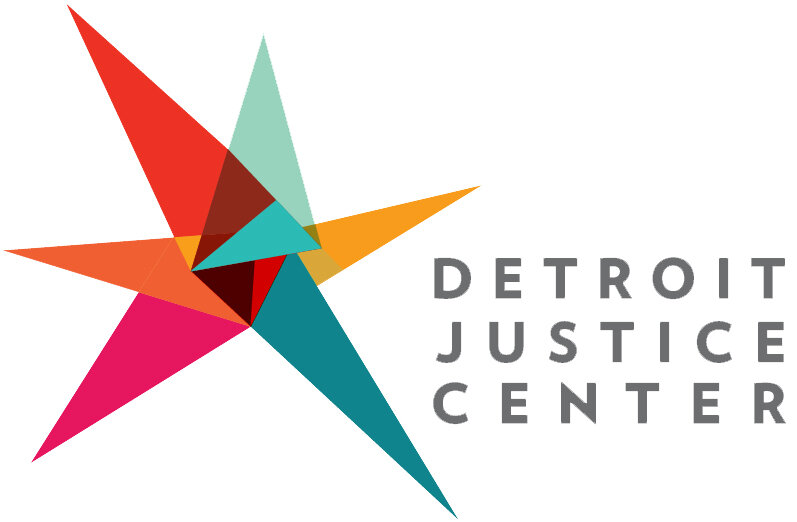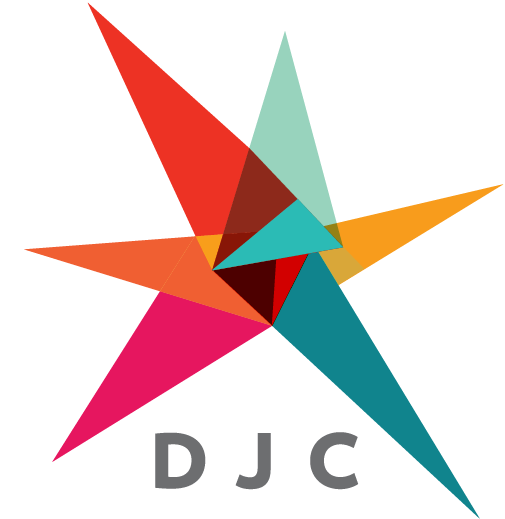Detroit Justice Center and The Bail Project Team up for First Bail Out
July 9, 2018
Ramon* has been jailed in Wayne County, despite having no conviction, for just over a week. His bail is set at $500, but neither Ramon nor his mother can afford to bring him home. Ramon is a young man in his early 20s, and every day he’s been in jail, he has missed out on his school courses and work. That’s where the Detroit Justice Center (DJC), in collaboration with The Bail Project’s Detroit-based Bail Disruptor/Advocate, Rasha Almulaiki, step in.
The Bail Project’s national team is at work with Rasha to determine where Ramon is being held and how to post his bail. Dolores Canales, Director of Talent Development at The Bail Project, reminds the group of the stakes: “Imagine if this was your own son in jail! You’d do whatever you could.” Serendipitously, the team discovers it is Ramon’s visiting day. They grab their papers and laptops and make their way to the courthouse to see what they can do.
Over 60 percent of people in jail in Wayne County are being held pre-trial—convicted of nothing. Most often they remain in jail because they and their families cannot afford to pay bond. The money bail system is a key driver of mass incarceration—each day, approximately half a million people are locked up in U.S. jails awaiting trial, similar to Ramon. Nationally, studies show that cash bail is set disproportionately against low-income minorities. For example, Black men are two times more likely to be detained than whites and judges typically set their bail 35 percent higher than for white men.
Pretrial detention has a number of far-reaching consequences, including an increase in guilty pleas and lengthier sentences. Even one day in jail can cause someone to lose her job, her home, or even custody of her children. Individuals are most likely to experience physical assault or sexual violence within their first three days in jail. And as we know from the case of Kalief Browder, who spent three years in pretrial detention on Rikers Island, a majority of that time in solitary confinement, it can prompt unfathomable physical and mental trauma.
In response to these injustices, communities across the country have started bail funds to bail out individuals awaiting trial who cannot afford their own bail. Last year, 25 groups across the U.S. organized the National Mama’s Bail Out Day to bail out Black mothers in time for Mother’s Day. The momentum continued on Father’s Day when the National Bail Out Collective, including organizations such as Southerners on New Ground, Color of Change, and BYP 100 (Black Youth Project), bailed out fathers who couldn’t afford bail. Jay-Z helped to fund this effort, and penned an op-ed taking on the exploitative bail industry.
Here in Detroit, the Detroit Justice Center team is excited to partner with Rasha and The Bail Project as they roll out operations in Detroit. Like her colleagues in other cities where The Bail Project has launched sites, Rasha will work with local partners to identify people in need of bail assistance, post their bails, and provide them with support throughout the legal process and connections to housing, employment, and other social services when needed. DJC’s Legal Services Practice will also provide them with support by resolving legal barriers to housing and employment. Once clients make it back for their court date, the bail funds will be returned for another bail out.
The Bail Project launched in 2017 and builds upon the success of The Bronx Freedom Fund. With over ten years of data to show that the cash bail system is unjust, racist, immoral, and ultimately unnecessary, The Bail Project’s goals are to expand to over 40 sites in the next five years and provide bail assistance for as many people as possible while using data and stories to support systemic reform efforts. Based on current funding, they anticipate bailing out over 160,000 people in the next five years. Camilo Ramirez, Communications Director at The Bail Project, sums up their goals: “The ultimate goal is systemic reform, but we also know that, every day that goes by, more and more people are subject to these dehumanizing conditions and the harms are irreversible. So our role in the movement is to provide an immediate lifeline to people, stop incarceration before it happens, and address the immediate human suffering while meaningful reform is achieved.” The Bail Project also has the data to show that the entire cash bail system is unnecessary. A decade of data from The Bronx Freedom Fund show that 95-96 percent of individuals return to court on their own recognizance. What do they need? Effective notifications and simple reminders, such as a text message.
The team working to release Ramon understood that every day in jail is one day too many. Rasha and The Bail Project team were able to bail out Ramon within a few days. They met him outside the jail, helped him reconnect with his family, and provided safe transport home. Ramon told the team that, while in jail, he had been trading his breakfast and lunch to use a fellow detainee’s phone card to call his mother. His family did not have money to put on a phone card for him, so he traded his county-issued meals to be able to communicate with them.
There are many more people with stories similar to Ramon’s incarcerated in pretrial detention all over the country at this very moment—and hundreds here in Detroit. That’s why people with incarcerated loved ones and other advocates are ramping up efforts to end cash bail and pretrial detention in Michigan. Here in Detroit, people like Rasha, who call Metro Detroit home and have years of experience with community organizing, will work hard alongside existing organizations and networks that are built from local communities to resist new and existing systems of incarceration. On her first bail out in Detroit, Rasha said she felt truly humbled by the experience, adding “I am excited to be part of reform on the front end in Detroit. This experience has further solidified the reality of just how important and meaningful this work is to safeguard the ethos of opportunity and justice in the community.”
With thanks to Elizabeth Tacke, DJC Communications Fellow
Want to learn more? Check out these resources:
Transformative Bail Reform: A Popular Education Curriculum
Until Freedom Comes Bail Out Toolkit
Video: The Truth About the Money Bail Industry (Color of Change)
Video: End Money Bail Now (Essie Justice Group)
Video: What If We Ended the Injustice of Bail? (Robin Steinberg)
_____________________________________________________
*Ramon is a pseudonym, used to protect his identity.

